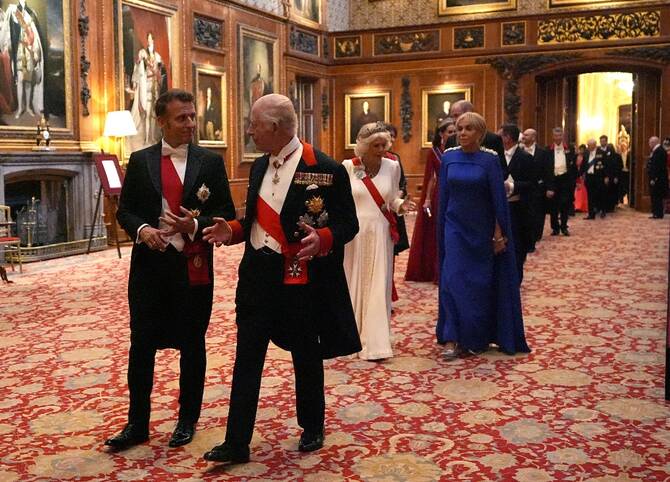Britain and France are once again joining forces to tackle a long-standing migration challenge—migrants crossing the English Channel in small boats. Following French President Emmanuel Macron’s three-day state visit, Prime Minister Keir Starmer met with him to address one of their toughest joint problems. On Thursday, both sides are set to discuss concrete steps during a summit that also includes talks on the economy, defense, and Ukraine.
The UK has seen a major rise in small boat crossings in 2025. More than 20,000 people crossed in the first half of the year, a 50% increase from the same period in 2024. Overall, 37,000 people were detected crossing last year, with many risking their lives on the 20-mile journey from northern France. Tragically, dozens have died during these dangerous trips.
During talks at Downing Street, Starmer and Macron agreed that stopping these crossings is a shared priority. Starmer’s office said both countries would focus on “shared solutions,” including new ways to stop people-smuggling gangs from profiting. They also hope to find a “new deterrent” that breaks the smugglers’ business model.
Why are migrants still crossing the Channel in small boats?
Many migrants choose the UK because they have family there, speak English, or believe it’s easier to find work. Despite previous efforts, smugglers continue to offer sea crossings after land routes through the Channel Tunnel were heavily restricted. French police have cleared camps in Calais and increased patrols, but smugglers adapt their tactics, making it a constant “cat and mouse” game, experts say.
The UK has paid France millions to patrol beaches and increase drone surveillance. A new intelligence unit has been set up in Dunkirk, and French officers were recently seen slashing boats to prevent departures. Starmer praised this cooperation and said for the first time, France is reviewing its laws and beach tactics.
Meanwhile, Macron pointed out that the UK also needs to reduce its “pull factors”—reasons that make it attractive for migrants, such as jobs and family connections. He stressed that without changes on both sides, progress would be limited.
One proposal being discussed is a “one-in, one-out” deal, where France would take back some migrants who arrived in the UK, while Britain would accept others with family ties in the UK. The idea aims to balance responsibility and improve humanitarian support.
Starmer has already scrapped the former government’s controversial Rwanda deportation plan and now focuses on building better international cooperation. Both leaders agreed they need “tangible results” and not just promises. While experts believe the migration problem won’t disappear, they say strong cooperation could lead to real progress—if the plans are carried out well.

